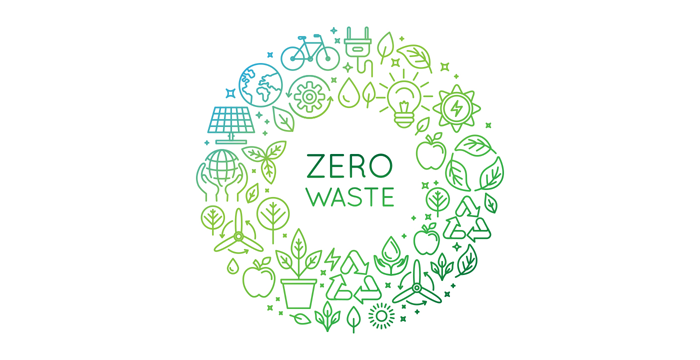What is the Zero-Waste Movement?
The zero-waste movement is a lifestyle where people aim to eliminate their trash output completely. This means no plastic, no wrappers, no garbage. While this may seem like an unrealistic task in today’s very disposable society, everyday people all over the country are showing that it can be done. By reevaluating the way they approach the concept of trash, these leaders of the zero-waste movement are teaching the world that we all have the ability to make a difference in protecting our environment.
A lot of the waste we throw out on a daily basis ends up in landfills. To put it simply, landfills are giant holes in the ground where waste is buried and then covered with soil or an alternative material. The problem with landfills, however, is they are horrible for the environment. As a leading producer of methane, landfills contaminate soil and emit harmful greenhouse gasses that contribute to global warming. So by refusing to produce any waste, the zero-waste movement hopes to minimize the harmful effects of landfills on our planet.
How do people live a zero-waste lifestyle?
Anyone living a zero-waste lifestyle will say it’s all about beginning with small life changes. By doing things like buying secondhand, using reusable containers, and composting food scraps, anyone can significantly reduce the amount of trash they produce on a regular basis. There are many zero-waste blogs on the Internet, like Going Zero Waste or Trash is for Tossers, that share helpful tips on small changes that can be made to decrease waste.
Misconceptions about the zero-waste movement
Some large companies claim to have taken a “zero-waste-to-landfill” approach, using methods like incineration in order to avoid sending their waste to landfills. Certain environmental organizations, like the Zero Waste International Alliance (ZWIA), claim this is a misuse of the phrase “zero waste”. The true aim of zero waste is not to just keep waste out of landfills, but rather “redesign our entire cycle of resource extraction, consumption and discard management so no resources are wasted at any point along the way.”
Going zero waste is obviously a very large and demanding task. If you want to help keep trash out of landfills, but aren’t in the position to commit entirely to zero waste, that’s okay! There are still so many things you can do to help minimize the problem. Whether it’s using a reusable water bottle, or donating your clothes instead of throwing them out, every small step counts!

